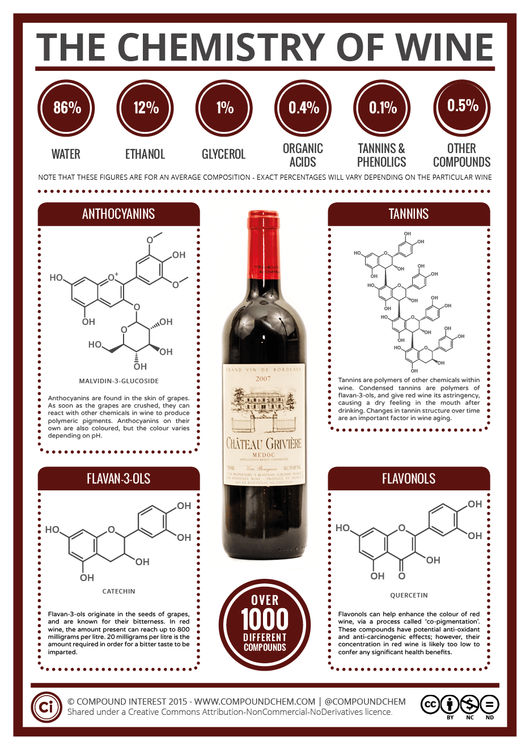© Compound InterestThe Key Chemicals in Red Wine
Red wine has been espoused over the years for its supposed health benefits, from claims that it could let us live to 150, to assertions that chemicals within it can help prevent cancer. Whilst these are no doubt a very pleasant means to justify a glass of wine (or several), how correct are they? Similarly, ‘tannins’ are commonly mentioned in wine circles when discussing the flavour and quality of wines, but what are tannins, and what effect do they have on the quality of the wine?
In general, red wine is a complex mix of a large number of chemicals; there’s no exact figure, but estimates range from around 800 different compounds to over 1000. An average red wine will contain 86% water, and 12% ethyl alcohol. Glycerol (also known as glycerin) makes up around 1%, with a variety of acids making up an additional 0.4%. Compounds referred to as tannins and phenolics comprise just 0.1% of your average red wine – but it’s to these we’ll look when examining the contributing compounds to colour and flavour.






